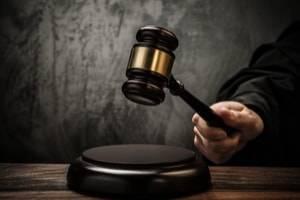Court Strikes Down Exigency Claim, Warrantless Blood Test
 The Texas Court of Criminal Appeals recently upheld a trial court’s decision to bar a blood sample from being used in a high-profile driving while intoxicated case. In The State of Texas v. Joel Garcia, the defendant has been charged with three counts of intoxication manslaughter for allegedly being under the influence of alcohol and cocaine during a fatal traffic accident. The trial court judge approved the defendant’s request to suppress the test results from a blood sample that police obtained without a warrant. The Texas Eighth District Court of Appeals overturned that ruling, stating that exigent circumstances permitted police to forgo the warrant. The Court of Criminal Appeals, the state’s highest criminal appeals court, reinstated the trial court’s ruling.
The Texas Court of Criminal Appeals recently upheld a trial court’s decision to bar a blood sample from being used in a high-profile driving while intoxicated case. In The State of Texas v. Joel Garcia, the defendant has been charged with three counts of intoxication manslaughter for allegedly being under the influence of alcohol and cocaine during a fatal traffic accident. The trial court judge approved the defendant’s request to suppress the test results from a blood sample that police obtained without a warrant. The Texas Eighth District Court of Appeals overturned that ruling, stating that exigent circumstances permitted police to forgo the warrant. The Court of Criminal Appeals, the state’s highest criminal appeals court, reinstated the trial court’s ruling.
Exigency
The Fourth Amendment to the U.S. Constitution requires law enforcement to present a suspect with a warrant before conducting a search, which includes the drawing of blood to test for intoxication. Courts may allow prosecutors to present evidence that was obtained without a search warrant if there was an immediate danger of losing the evidence if law enforcement had waited for the warrant to be issued. In The State of Texas v. Joel Garcia, prosecutors claimed three exigent circumstances that necessitated drawing the blood immediately:
- The chaotic nature of the accident scene delayed the investigation and may have allowed intoxication levels in the defendant's blood to naturally dissipate;
- The presence of cocaine in the defendant's system could have dissipated at an unpredictable rate; and
- The hospital was planning on administering an IV on the defendant, which may have diluted the blood sample.
Court Reasoning
In rejecting the exigency claims, the Court of Criminal Appeals stated that proof of exigency must come from historical facts and what police could reasonably infer. The court soundly rejected the first two claims. Not enough time had passed for the police to believe that the defendant's blood alcohol concentration would substantially drop if they waited for a warrant to be approved. Police did not cite a suspicion of cocaine use leading up to drawing the blood sample. As for the third claim, the court stated that police had no reason to believe that medical treatment was imminent because:
- The defendant refused the IV, which one of the officers testified to having seen;
- Another officer was five-to-six feet away from the defendant when a doctor told the staff to hold off on the IV because of the defendant's noncompliance; and
- Twenty minutes had passed without any sign of imminent medical treatment when the officers told a phlebotomist to draw a blood sample.
Contact a San Antonio DWI Defense Lawyer
Prosecutors bear the burden of explaining why police were justified in taking your blood sample without a warrant. A San Antonio DWI defense attorney at the Law Offices of Sam H. Lock can contest claims that exigency forced police to ignore your constitutional rights. To Schedule your consultation, call 210-226-0965.
Source:
https://www.elpasotimes.com/story/news/crime/2019/03/11/texas-appeals-court-denies-new-hearing-joel-garcia-blood-dwi-case/3115307002/





